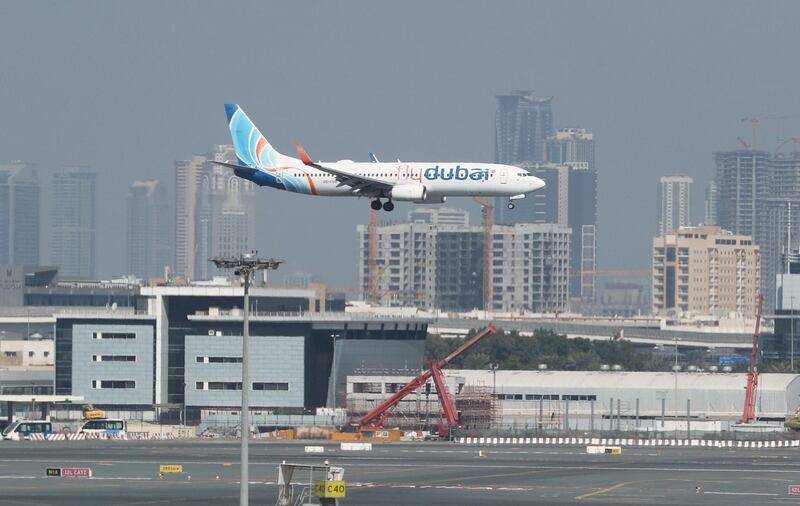Low-cost airline flydubai swung to an annual loss in 2020 as the Covid-19 pandemic shut international borders and the 22-month grounding of the Boeing 737 Max jet shrank its fleet.
The airline recorded a loss of Dh712.6 million ($194m) last year, compared with a profit of Dh198.2m in 2019.
Total annual revenue dropped by 52.7 per cent to Dh2.8 billion in 2020 as it carried fewer passengers, flydubai said on Sunday.
Chief executive Ghaith Al Ghaith said the pandemic had affected flydubai more than any other crisis.
"The effects of the travel restrictions that were put in place to safeguard against the transmission of the virus have heavily [affected] the aviation industry."
The pandemic is the worst crisis in the history of the aviation industry and has led to lockdowns worldwide, prompted governments to shut borders and forced airlines to ground their aircraft, affecting the livelihoods of millions of workers in the travel and tourism sectors.
Flydubai carried 3.2 million passengers in 2020, compared with 9.6 million a year earlier, as the pandemic hit air travel demand.
The airline said 1,092 employees went on unpaid or voluntary leave, from its current workforce of 3,796 workers.
Its workforce shrank by 3.2 per cent in 2020, compared with the previous year, it said.
"The challenges we faced in 2020 meant that there were difficult decisions to be made," said Mr Al Ghaith.
"Our employees had to take periods of unpaid leave or work at reduced salary levels. I fully recognise that this created some hardship, but it has meant that we have been able to maintain employment levels."
The airline, which does not have a domestic market, said it was severely affected by the pandemic-induced closure of borders and flight suspensions.
Flydubai "severely curtailed" operations last year for 14 weeks after the UAE suspended most passenger flights in March 2020 to curb the spread of the virus.
Dubai, a regional tourism and finance hub, reopened its borders to foreign visitors on July 7.
To cope during the crisis, flydubai maximised revenue-generating opportunities, took early measures to control costs and preserved liquidity, said chief financial officer Francois Oberholzer.
The airline deferred capital expenditure and raised new financing facilities worth Dh283m. These measures enabled it to end the year with cash assets, including pre-delivery payments, of Dh2.5bn, he said.
The size of flydubai's fleet dropped to 51 Boeing 737 jets that flew to 65 destinations in 2020, down from 59 aircraft serving 93 routes in 2019.
"We managed the combined effects of the pandemic and continued grounding of the Max aircraft on our operations but, undoubtedly, they have had a severe [effect] on our results," said Mr Al Ghaith.
Looking ahead, the state-owned airline said it is "well placed" to identify new opportunities and respond quickly by using its narrow-body aircraft.
"We expect trading conditions to remain challenging and the business fundamentals remain strong," said Mr Al Ghaith.
"This is recognised by our shareholder and we are grateful for their continued confidence and commitment.”








